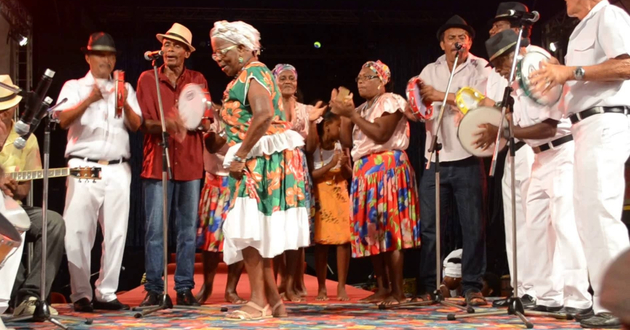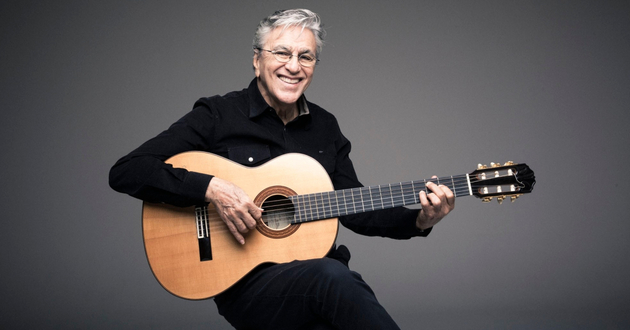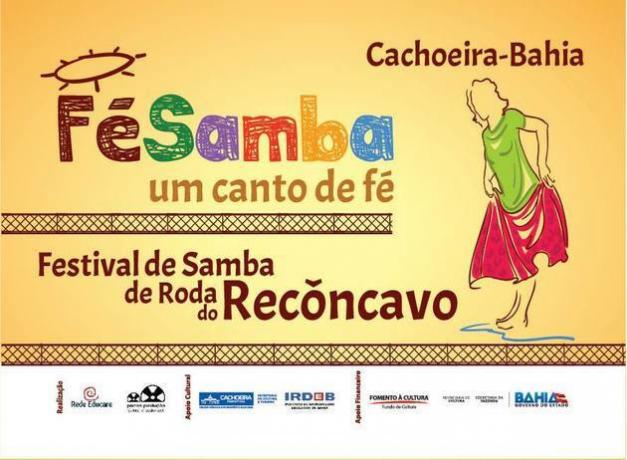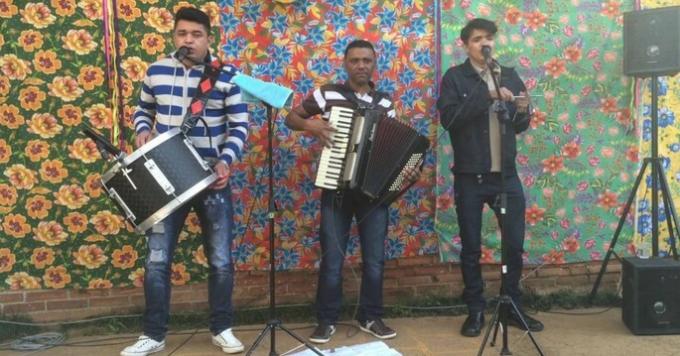Samba de roda is a popular Brazilian musical style. It is a variant of samba with African roots, and which brings together various songs, poetry and dances.

In addition to the traditions brought to Brazil by African slaves, the history of samba de roda also includes some musical characteristics of Portuguese origin.
Origin of samba de roda
Samba de roda emerged in Bahia in the 17th century, although its first records date back to 1860. Today, it is a heritage and cultural heritage of Afro-Brazilian culture.
This style is closely related to the wheel of capoeira, which involves music and fights, and the orixás, African spiritual entities.
Currently, this artistic expression is present in all parts of Brazil. In Bahia, it is in the Recôncavo Baiano that this rhythm is most popular. This is because this region was the stage for the arrival of African slaves.
Despite being based on African traditions, it also involves some aspects of Portuguese culture. As an example, we have the use of some instruments, such as the viola, and also the lyrics of the songs, which are sung in Portuguese.
Curiosities about samba de roda
Do you know how samba de roda came about?
This type of Brazilian samba emerged from an African musical style, the semba, which was brought to Brazil with the arrival of Angolan slaves.
Another interesting fact about samba de roda is that in 2003, it was included in the Book of Record of the Forms of Expression.
In 2005, it became Intangible Heritage of Humanity, having been considered Masterpiece of the Oral and Intangible Heritage of Humanity for the UNESCO.
It was then that, in 2013, he received the title of Brazil's Cultural Heritage, fur National Historical and Artistic Heritage Institute (IPHAN).
Samba de roda characteristics

Samba de roda is composed of a group of musicians who play different instruments. stand out the viola, O tambourine, O rattle, O atabaque, O ganza, a viola, O reco-reco, O agogo it's the berimbau.
People who are present watching the performance follow the music by clapping their hands.

This style gets its name because the musicians form a circle and one person at a time dances inside it. So everyone is invited to dance and sing.
One of the main characteristics of samba de roda is that, normally, women dance in the roda while men clap, sing and play the instruments.

This manifestation usually occurred in traditional festivals or in the worship of the orixás. Nowadays, it is common in any occasion, simply for the fun it involves and provides.
The variants of samba de roda are: o foul samba, O samba run and the navel. Researchers point out that the samba carioca was inspired by the samba de roda of Bahia.
Samba de roda songs
The samba de roda repertoire is very extensive. Several Brazilian musicians were responsible for popularizing the rhythm, including Dorival Caymmi, João Gilberto and Caetano Veloso.
Dorival Caymmi

See below a samba de roda lyric sung by Dorival Caymmi.
top wheel
When we're a little kid
Sing squares to play
When are big people
hear blocks crying
How does the memory move
from a happy time
when we hear sing
wheel, top
Shake, hey top
The top entered the wheel, oh top
wheel, top
Shake, hey top
Shoe on the brick, hey top
wheel, top
Shake, hey top
Pass from one side to the other, hey top
wheel, top
Shake, hey top
Also our lives
It's a spinning top
A top that also stops
when time makes you tired
Joao Gilberto

See below a samba de roda lyric sung by João Gilberto.
I came from Bahia
I came from Bahia to sing
I came from Bahia to tell
so many beautiful things
In Bahia, which is my place
It has my ground, it has my sky, it has my sea
The Bahia that lives to say
how do you live
Where we don't have to eat
But from hunger does not die
Because in Bahia there is a mother Iemanjá
On the other side, Senhor do Bonfim
That helps the Bahian to live
To sing, to samba for real
to die of joy
At the street party, at the samba de roda
In the moonlit night, in the corner of the sea
I came from Bahia
But I go back there
I came from Bahia
Caetano Veloso

See below a samba de roda sung by Caetano Veloso.
someone warned me
they went to call me
I'm here, what's up
I came from there, I came from there little one
But I came from there little one
Someone warned me to step on this ground slowly
I was always obedient
But I couldn't resist
It was a samba circle
That I joined the wobbly
to distract me
When I get back to Bahia
I will have a lot to tell
o godfather don't be angry
That I was born in samba
and I can't stop
they went to call me
Other samba de roda singers
In addition to the names already highlighted above, know that other Brazilian artists sing or have sung samba de roda.
- Ataulfo Alves
- Beth Carvalho
- Topper
- Mrs Edith do Prato
- Dudu noble
- Mariene de Castro
- Nelson Cavaquinho
- Santa Rosa
- Pixinguinha
- Zeca Pagodinho
Recôncavo Baiano roda samba
See an excerpt from the documentary "Recôncavo Baiano Roda Samba" produced by the National Historical and Artistic Heritage Institute (IPHAN).
Recôncavo Baiano celebrates one of the biggest samba de roda festivals in Brazil: the Recôncavo Roda Samba Festival, which takes place in the city of Cachoeira.
Also known as FaithSamba, the Roda de Cachoeira Samba Festival consists of the presentation of several samba de roda groups.
The different choice of instruments and languages of each group shows how wide the diversity of samba de roda is.

folklore quiz
Don't stop here! Toda Matéria selected a series of very rich texts on folklore to help you broaden your knowledge.
- Catira or Cateretê: origin, dances and music
- Carimbó: origin, types, instruments, clothes, choreography and music
- African dances as a form of cultural communication
- Maracatu: characteristics and differences between nation and rural maracatu
- Congada: origin, dance and party
- Bumba meu boi: origin, legend, dance and parties
- Frevo: origin, characteristics and types of dance
- Quadrilha: origin, dance, music and characteristics
- Main Characteristics of Afro-Brazilian Culture
- Brazilian folklore: legends, games, songs, dances and parties



